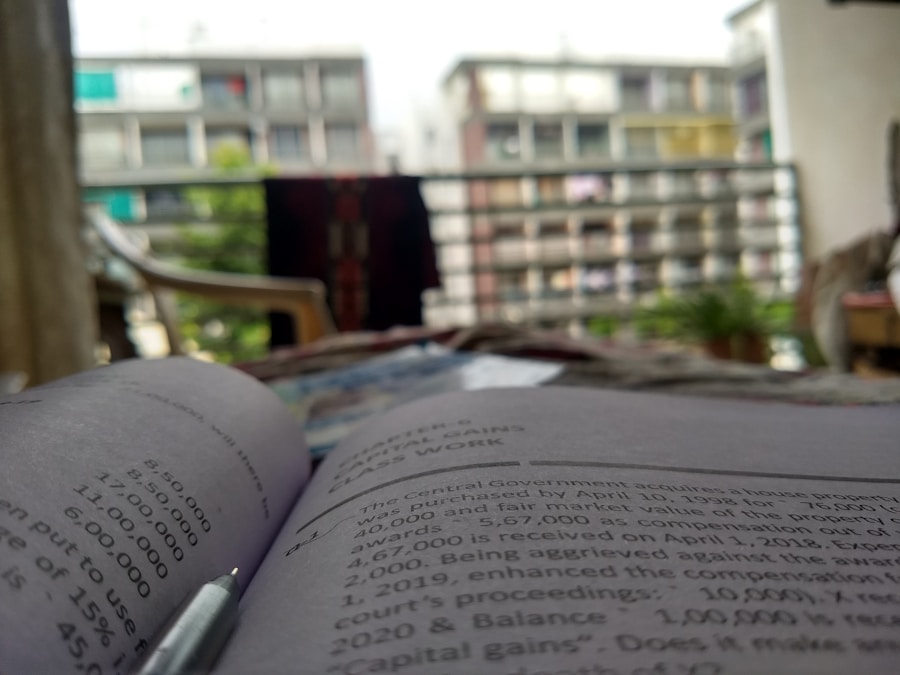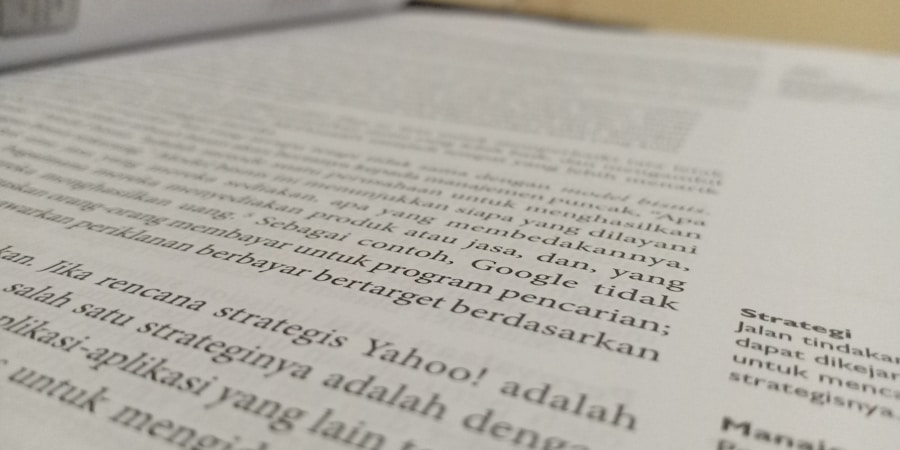Literature serves as a mirror reflecting the complexities of human society, encapsulating the myriad experiences, struggles, and triumphs of individuals and communities. It is not merely a collection of stories or poems; rather, it is a powerful medium that shapes and is shaped by the sociocultural context in which it exists. The sociological impact of literature extends beyond entertainment; it influences perceptions, molds ideologies, and fosters empathy among readers.
Through narratives, characters, and themes, literature provides insights into the human condition, revealing the intricacies of social structures and relationships. The interplay between literature and society is profound. Authors often draw inspiration from their surroundings, embedding social commentary within their works.
This relationship is reciprocal; literature can also influence societal norms and values, prompting readers to reflect on their beliefs and behaviors. By examining the sociological impact of literature, we can better understand how narratives contribute to the formation of cultural identities and the evolution of social thought. This exploration reveals not only the power of storytelling but also its potential to inspire change and foster a deeper understanding of diverse human experiences.
Key Takeaways
- Literature plays a significant role in shaping cultural norms and values, influencing societal beliefs and behaviors.
- It serves as a reflection of social issues and movements, providing insight into the historical and contemporary context of society.
- Literature has the power to inspire social change and activism, sparking movements and challenging societal norms.
- It represents social identities and diversity, offering a platform for marginalized voices and experiences to be heard and understood.
- Through literature, individuals are socialized and their perspectives are shaped, influencing their understanding of the world around them.
The Role of Literature in Shaping Cultural Norms and Values
The Power of Social Commentary
For instance, the works of Charles Dickens in the 19th century highlighted the struggles of the working class in Victorian England, bringing attention to issues such as poverty, child labor, and social injustice. His novels not only entertained but also educated readers about the harsh realities faced by many, ultimately contributing to social reform movements.
Challenging Traditional Gender Roles
Moreover, literature has the capacity to introduce new ideas and perspectives that can alter cultural norms. The emergence of feminist literature in the late 20th century, exemplified by authors like Virginia Woolf and Margaret Atwood, challenged traditional gender roles and advocated for women’s rights. These narratives encouraged readers to question societal expectations and consider alternative viewpoints regarding gender equality.
A Reflection and Catalyst of Social Change
As literature evolves, it continues to reflect and shape cultural values, serving as both a product and a catalyst of social change.
Literature as a Reflection of Social Issues and Movements

Throughout history, literature has served as a powerful lens through which social issues and movements are examined and understood. Authors often use their craft to comment on pressing societal concerns, from civil rights to environmentalism. For example, Harriet Beecher Stowe’s “Uncle Tom’s Cabin” played a crucial role in raising awareness about the horrors of slavery in America.
Published in 1852, the novel not only depicted the brutal realities faced by enslaved individuals but also galvanized public opinion against the institution of slavery, contributing to the abolitionist movement. In contemporary literature, authors continue to address social issues such as racism, immigration, and climate change. Chimamanda Ngozi Adichie’s “Americanah” explores themes of race and identity through the lens of a Nigerian woman navigating life in America. By weaving personal narratives with broader social commentary, Adichie sheds light on the complexities of race relations and the immigrant experience.
Literature thus serves as a vital tool for raising awareness about social issues, fostering dialogue, and inspiring collective action.
The Influence of Literature on Social Change and Activism
| Year | Number of Books Published on Social Change | Number of Literary Events on Activism | Number of Social Movements Inspired by Literature |
|---|---|---|---|
| 2015 | 3,500 | 200 | 15 |
| 2016 | 3,800 | 250 | 20 |
| 2017 | 4,200 | 300 | 25 |
| 2018 | 4,500 | 350 | 30 |
| 2019 | 4,800 | 400 | 35 |
The influence of literature on social change and activism cannot be overstated. Throughout history, literary works have inspired movements and motivated individuals to take action against injustice. The writings of authors such as James Baldwin and Audre Lorde have been instrumental in articulating the struggles faced by marginalized communities, providing a voice for those who have been silenced.
Baldwin’s essays on race relations in America challenged readers to confront uncomfortable truths about systemic racism, while Lorde’s poetry celebrated intersectionality and advocated for LGBTQ+ rights. Literature can mobilize individuals by fostering a sense of solidarity among readers who share similar experiences or aspirations for change. The power of storytelling lies in its ability to evoke empathy and understanding, encouraging readers to engage with social issues on a deeper level.
For instance, the young adult novel “The Hate U Give” by Angie Thomas addresses police brutality and racial injustice through the eyes of a teenage girl. By presenting these issues in a relatable context, Thomas empowers young readers to become advocates for social justice in their own communities.
The Representation of Social Identities and Diversity in Literature
The representation of social identities and diversity in literature is crucial for fostering inclusivity and understanding within society. Literature has the potential to amplify marginalized voices and challenge dominant narratives that often exclude or misrepresent certain groups. Authors from diverse backgrounds bring unique perspectives that enrich the literary landscape, allowing readers to engage with experiences that differ from their own.
For example, works by authors such as Toni Morrison and Junot Díaz explore themes of race, identity, and belonging within their respective cultural contexts. Morrison’s “Beloved” delves into the psychological scars left by slavery, while Díaz’s “The Brief Wondrous Life of Oscar Wao” examines the complexities of Dominican-American identity. These narratives not only provide representation but also invite readers to reflect on their own identities and the societal structures that shape them.
By embracing diversity in literature, we can cultivate empathy and promote a more nuanced understanding of the human experience.
Literature and Socialization: How It Shapes Individual Perspectives

Literature plays a significant role in socialization by shaping individual perspectives and influencing how people perceive themselves and others. From an early age, children are exposed to stories that impart moral lessons, cultural values, and social norms. Picture books like “Where the Wild Things Are” or chapter books such as “Charlotte’s Web” introduce young readers to themes of friendship, empathy, and resilience.
These narratives not only entertain but also serve as tools for teaching important life lessons that contribute to personal development. As individuals grow older, literature continues to shape their worldviews by exposing them to diverse experiences and ideas. Young adult fiction often tackles complex issues such as mental health, sexuality, and identity formation.
Novels like “Looking for Alaska” by John Green or “Eleanor & Park” by Rainbow Rowell resonate with adolescents navigating their own challenges. Through relatable characters and situations, these stories provide validation and understanding, helping young readers make sense of their own lives while fostering connections with others who may share similar struggles.
The Power of Literature in Challenging Social Injustices and Inequalities
Literature possesses an inherent power to challenge social injustices and inequalities by illuminating systemic issues that often go unnoticed or unaddressed. Through compelling narratives, authors can expose the harsh realities faced by marginalized communities while advocating for change. Works such as “The Color Purple” by Alice Walker highlight the intersectionality of race, gender, and class oppression, shedding light on the struggles endured by African American women in the early 20th century.
Moreover, literature can serve as a form of resistance against oppressive systems by giving voice to those who have been silenced. The poetry of Maya Angelou exemplifies this power; her work addresses themes of racism, identity, and resilience while celebrating the strength of marginalized individuals. Angelou’s autobiographical writings inspire readers to confront injustice head-on and advocate for equality.
By challenging societal norms through literature, authors can inspire readers to question their own beliefs and take action against injustices they encounter.
The Ongoing Relevance of Exploring the Sociological Impact of Literature
The exploration of literature’s sociological impact remains relevant in today’s rapidly changing world. As society grapples with complex issues such as inequality, climate change, and political unrest, literature continues to provide a vital space for reflection and dialogue.
In an era where voices are often marginalized or silenced, literature serves as a powerful tool for advocacy and understanding. It encourages us to engage with diverse perspectives while challenging our own assumptions about society. As we delve deeper into the sociological impact of literature, we not only enrich our understanding of storytelling but also recognize its potential to inspire change and foster empathy across cultures and communities.
One interesting article related to the sociology of literature is “The Incredible Benefits of Yoga for Mental and Physical Health” which explores the impact of yoga on overall well-being. Yoga has been shown to have positive effects on mental health, stress reduction, and physical fitness. This article delves into the ways in which practicing yoga can improve one’s quality of life, which can also be reflected in the themes and messages found in literature. To read more about the benefits of yoga, check out the article here.
FAQs
What is the sociology of literature?
The sociology of literature is a field of study that examines the social and cultural factors that influence and shape literature. It explores how literature reflects and influences society, and how social structures and power dynamics impact literary production, reception, and interpretation.
What are the key concepts in the sociology of literature?
Key concepts in the sociology of literature include literary canon, cultural capital, literary field, literary institution, and the role of social class, gender, race, and other social factors in shaping literary production and reception.
How does the sociology of literature differ from literary criticism?
While literary criticism focuses on analyzing and interpreting individual literary works, the sociology of literature takes a broader perspective, examining the social and cultural contexts in which literature is produced, circulated, and consumed. It also considers the role of literature in shaping and reflecting social structures and power dynamics.
What are some examples of sociological approaches to literature?
Sociological approaches to literature include examining the representation of social issues and identities in literature, analyzing the role of literary institutions and publishing industry in shaping literary production, and studying the social and economic factors that influence literary success and recognition.
How does the sociology of literature contribute to our understanding of society?
The sociology of literature helps us understand how literature both reflects and shapes social norms, values, and power dynamics. It also sheds light on the ways in which social factors such as class, race, and gender influence literary production, reception, and interpretation.
























+ There are no comments
Add yours